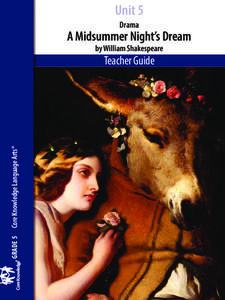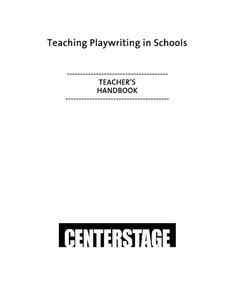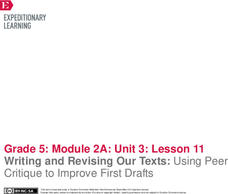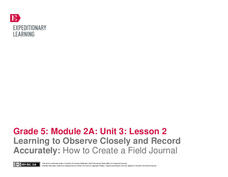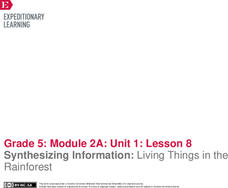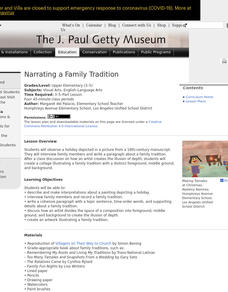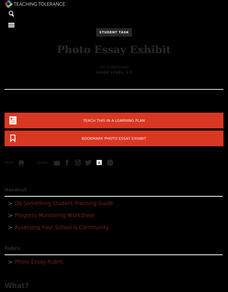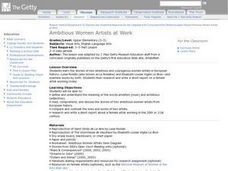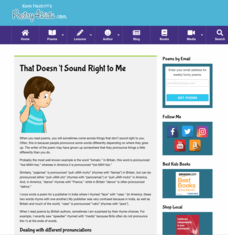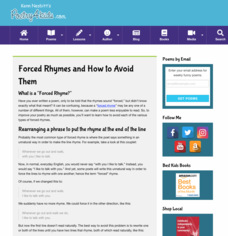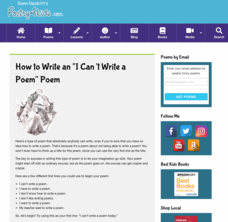Core Knowledge Foundation
Unit 5: A Midsummer Night’s Dream
Fifth graders analyze William Shakespeare's A Midsummer Night's Dream, paying close attention to character development, plot, and dialogue. With daily reading and thoughtful discussion, scholars take pen to paper to respond to journal...
Core Knowledge Foundation
Unit 4: The Renaissance
The Renaissance is the theme of a five-week unit designed to boost reading comprehension, spelling, vocabulary, and expository writing skills. Scholars listen to and discuss daily readings and engage in skills practice activities...
Core Knowledge Foundation
Unit 3: Adventures of Don Quixote
Fifth graders explore the Adventures of Don Quixote in a four-week language arts unit. Scholars listen to and discuss a new chapter each day as well as examine vocabulary and practice word work including suffixes, subject-verb agreement,...
Core Knowledge Foundation
Unit 2: Early American Civilizations
Fifth graders explore early American civilizations in a four-week ELA unit. Every lesson offers an opportunity to read and discuss a selected passage followed by word work that covers vocabulary, grammar, and morphology. Learners write...
Core Knowledge Foundation
Unit 1: Contemporary Fiction - They Call Me Güero: A Border Kid’s Poems by David Bowles
They Call Me Güero: A Border Kid's Poems by David Bowles is the focus of a five-week language arts unit unit. Fifth graders listen to various poems and participate in thoughtful discussions, examining vocabulary and learning new words in...
GLSEN, Inc.
Ready, Set, Respect!
Instill the importance of respect in your classroom with a comprehensive unit that focuses on positive behavior in and outside of school. Three parts, each separated into four grade-specific lessons, cover bullying, bias, name-calling,...
Learning to Give
Teaching Playwriting in Schools
The world is a stage, and so is your classroom! Hone the skills of the next generation of Tony® award winners with a set of exercises, reference pages, writing prompts, and excerpts from famous plays.
Common Sense Media
Digital Citizenship Pledge
Learners collaborate to create a set of group norms and expectations by which they will abide in order to promote a safe, respectful online community.
EngageNY
Writing and Revising Our Texts: Using Peer Critique to Improve First Drafts
Mail me a postcard. Individuals design a postcard to show what Meg Lowman from The Most Beautiful Roof in the
World might have written to her friends at home. They then continue to work on writing a science journal entry.
EngageNY
Learning to Observe Closely and Record Accurately: How to Create a Field Journal
Look carefully. Scholars practice observing and recording the natural world around them by looking out a window or viewing an image. Learners discuss how their experience compares to that of Meg Lowman in The Most
Beautiful Roof in the...
EngageNY
Synthesizing Information: Living Things in the Rainforest
How is a map a type of informational text? Class members view a world map of major rainforests, discussing its text features with a partner. Next, they take notes on key details from multiple texts about rainforests and write an...
EngageNY
Summarizing Informational Text: “Hawaii’s Endangered Happy Face Spider”
Put on a happy face. Using an interesting resource, pupils read an informational text about Hawaii's endangered Happy Face Spider. Next, they participate in a jigsaw discussion to find the gist of the article.
EngageNY
Building Background Knowledge: Examining the Unique Living Things of the Rainforests and the Scientists Who Study Them
Gorillas, tigers, and tree frogs ... welcome to the rainforest! Scholars complete a KWL chart to determine what they already know—and what they want to find out—about the rainforest. Next, they participate in a gallery walk, viewing...
J. Paul Getty Trust
Narrating a Family Tradition
After examining a piece of art, scholars discuss what they see, paying close attention to details and space. A read-aloud introduces the topic of family traditions. Pupils interview their family members about a tradition in preparation...
Teaching Tolerance
Persuasive Letters
Sharpen persuasive writing skills while trying to solve a community problem. Learners choose a burning topic and then write letters to persuade others to come around to their views. The provided procedures walk through how to guide the...
Teaching Tolerance
Photo Essay Exhibit
Let the pictures do the talking. Children tell their stories using provided guidelines for a photo essay exhibit. Discussion questions and checklist materials help pupils brainstorm and create photo essays to help inspire social change.
Purdue University
Benefits of Connecting with Nature
Feel the healing effects of nature. Individuals learn about the benefits of nature using imagery. They begin by defining words to express how they feel emotionally and then practice using those words with hands-on activities. Once they...
Purdue University
Food Waste Solutions
Easy doesn't always mean better. In an era with pre-packaged everything, learners consider the environmental impact of the convenient trend. They critique the packaging of food and how waste impacts cost and then look for solutions.
Purdue University
Take-a-Hike
Learn about nature and health all in one set of lessons. Individuals use a scavenger hunt to record observations during a nature hike. They then complete activities to categorize their observations and rate the health of the habitat for...
J. Paul Getty Trust
Ambitious Women Artists at Work
Ambition is the keyword of a lesson that focuses on the contributions made by famous female artists. Specifically looking at European artists, Luisa Roldan and Elisabeth Louise Vigee Le Brun, scholars examine a piece of their work then...
Poetry4kids
That Doesn’t Sound Right to Me
Does pajamas rhyme with llamas to you? If it does (and even if it doesn't), an online lesson on rewording poetry for regional pronunciation may be helpful for you and your students.
Poetry4kids
Forced Rhymes and How to Avoid Them
Ready to take your poetry writing to the next level? Use an independent lesson to iron out all those forced rhymes, wrenched rhymes, and near rhymes from first-draft poems.
Poetry4kids
How to Write a Silly Song Parody
Imitation is the sincerest form of flattery—and it's a great way to learn about poetic structure! Young poets use familiar tunes to write a song parody based on straightforward guidelines.
Poetry4kids
How to Write an “I Can’t Write a Poem” Poem
Ever have students complain that they don't know how to write a poem? Turn those complaints into magnificent works of writing with an independent poetry lesson about not being able to write poetry.


